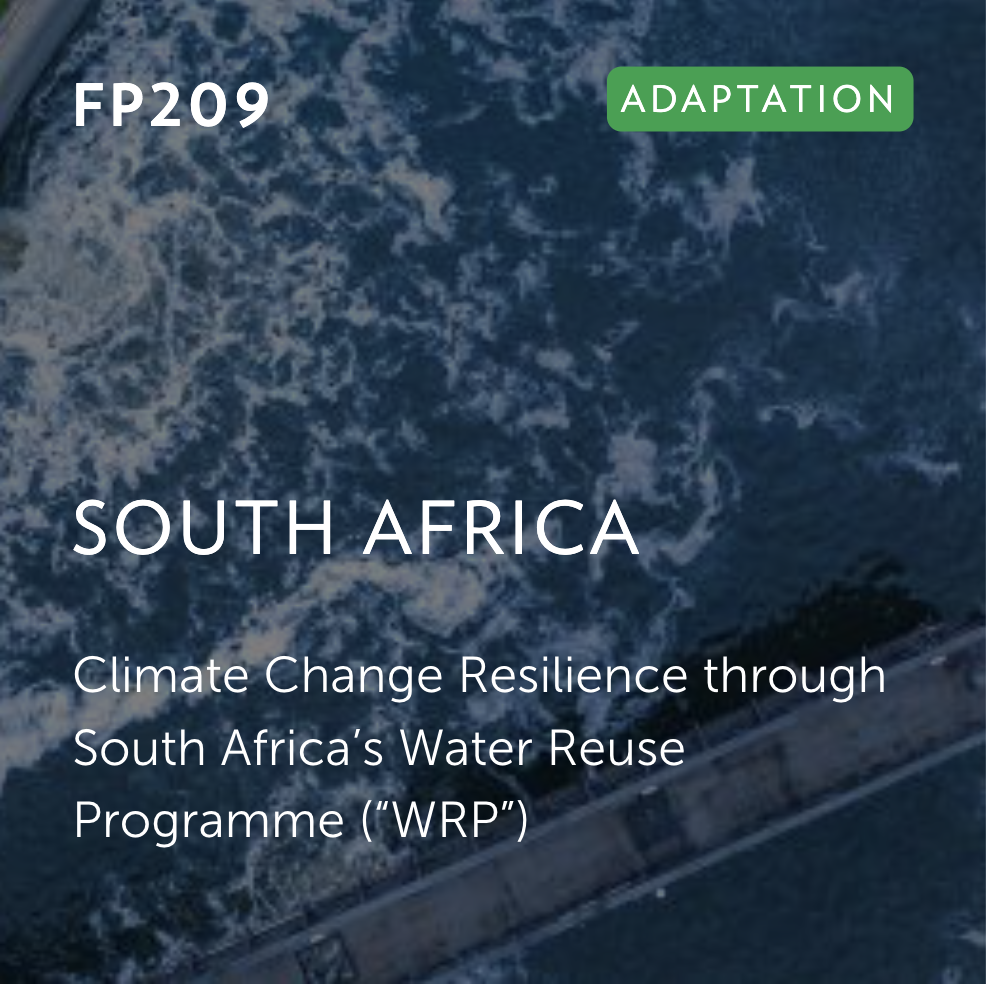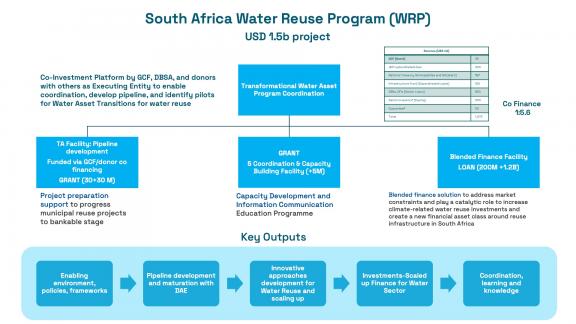The global water crisis: A call to action for climate and water initiatives
Insights from World Water Week 2023
The world is facing a climate and water crisis, with the impacts of climate change becoming more visible every day. Urgent and courageous steps are needed to achieve the UN Sustainable Development Goals (SDGs) and the Paris Agreement. The water sector is both a connector of climate change's consequences and a key player in adaptation and mitigation efforts. At World Water Week 2023, global leaders and experts emphasised the importance of financial solutions to address complex water challenges and realise SDG 6: clean water and sanitation. The Green Climate Fund (GCF) has a crucial role in mobilising investments and establishing partnerships to nurture policy and financial ecosystems favourable for climate and water initiatives.
GCF's vision: Merging climate finance and water security
One way to accelerate the implementation of the UN 2023 Water Action Agenda is through climate finance. Climate finance can help bridge the funding gap in the water sector and encourage private sector investment. GCF mobilises investments and establishes partnerships to nurture policy and financial ecosystems propitious for climate and water initiatives.
“Climate finance can help bridge the funding gap in the water sector and encourage private sector investment.”
To translate momentum into concrete action, research, role allocations, and treating water as a new asset class are essential. Innovative financing mechanisms like green bonds, impact investing, and new financial models could entice private sector investments aligned with the Paris Agreement. Additionally, there is a need for a paradigm shift in the way how water assets are defined, developed, and financed. This is a novel approach to enable private sector investment and ensure providing water for domestic, municipal, and industrial purposes. Donors, governments, sector implementers, policymakers, and academia also hold pivotal roles in accelerating SDGs' success.
GCF's goal is to deploy finance to reduce risks and barriers of water security interventions to catalyse private and commercial finance at scale to support the paradigm-shifting pathways of water conservation and preservation of water.
Realising the vision: The case of South Africa's water reuse programme
South Africa's Water Reuse Programme is a ground-breaking initiative that positions itself to unlock forthcoming economic growth while safeguarding its scarce and increasingly demanded water resources. By embracing the notion of water as a new asset class, the project seeks to establish and operationalise a national water reuse programme (WRP), a strategic response to the pressing issue of water scarcity by overhauling the nation's wastewater system. GCF funding plays a pivotal role in diminishing risk exposure for potential private financiers and municipalities. The objectives envisioned through GCF funding are multifaceted: establishing a programmatic approach, enhancing financial accessibility, and boosting private capital access.
GCF’s intention is to propagate the concept of this ground-breaking asset class to other nations and regions, amplifying the affordability and bankability of water projects. A co-investment programme is envisaged, aimed at bridging financial gaps within the water sector and nurturing private sector participation. While GCF is currently engaged in active discussions with multiple potential implementing partners, an open invitation is extended to all partners in the water sector to collaborate, unite efforts, and co-invest to accelerate the water action agenda and close financial gaps.
Path ahead: GCF's commitment to water security
GCF's commitment to water security is unwavering. The Fund pledges to support countries in creating an enabling investment environment to identify, design, and implement public and privately funded transformational water security interventions as a new asset class. Financing the transition and de-risking private investment to address financial market barriers and ensure affordability and bankability to unlock water reuse investment is also part of GCF's commitment.
With its funding reducing risk exposure, GCF's initiative showcases how water can be harnessed as a new asset class, paving the way for economic growth while addressing water scarcity.
In conclusion, accelerating the implementation of the UN 2023 Water Action Agenda through climate finance is crucial to achieving SDG 6.
By Amgad Elmahdi, Water Resources Senior Specialist, Division of Mitigation and Adaptation, Green Climate Fund

